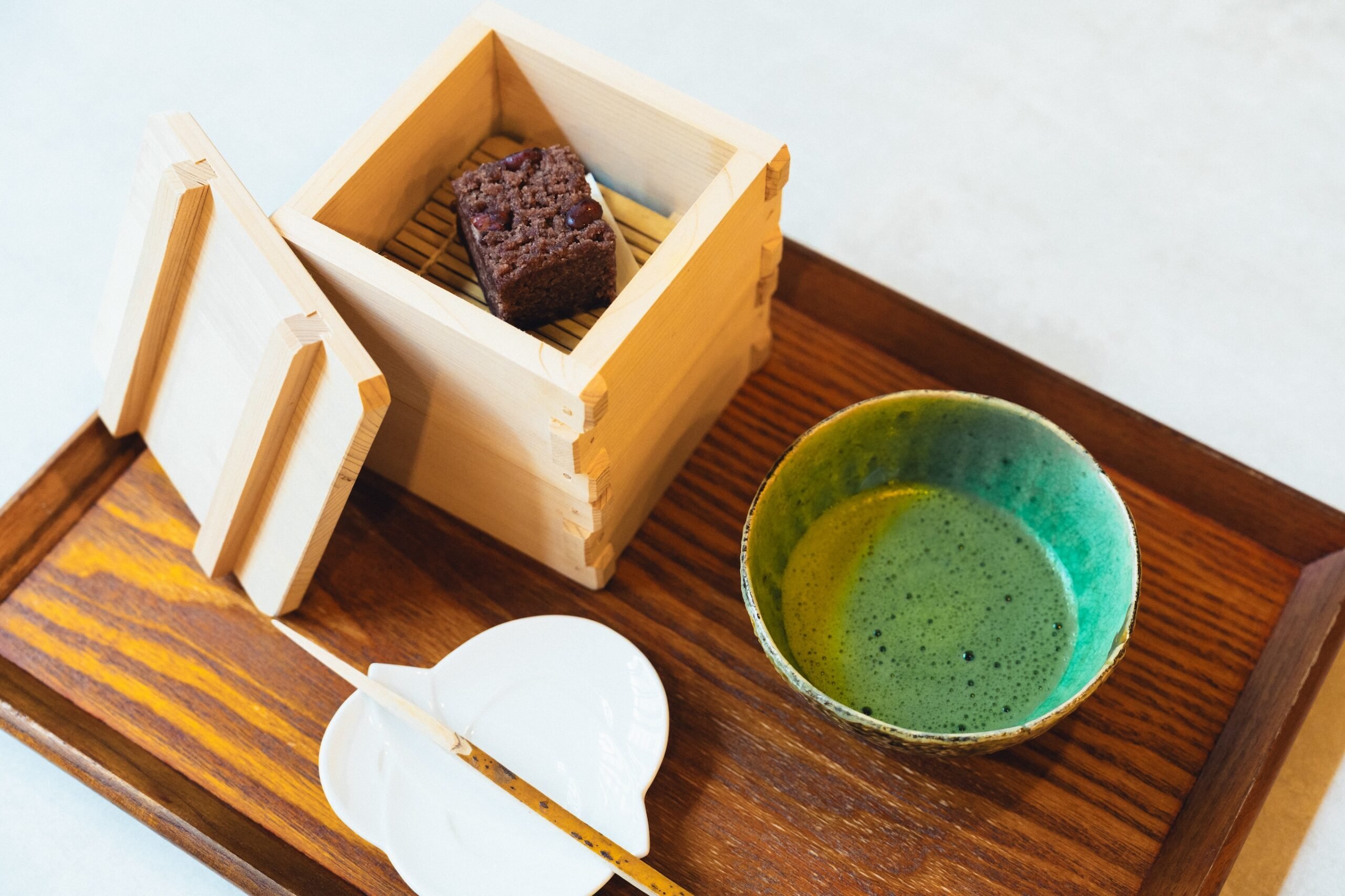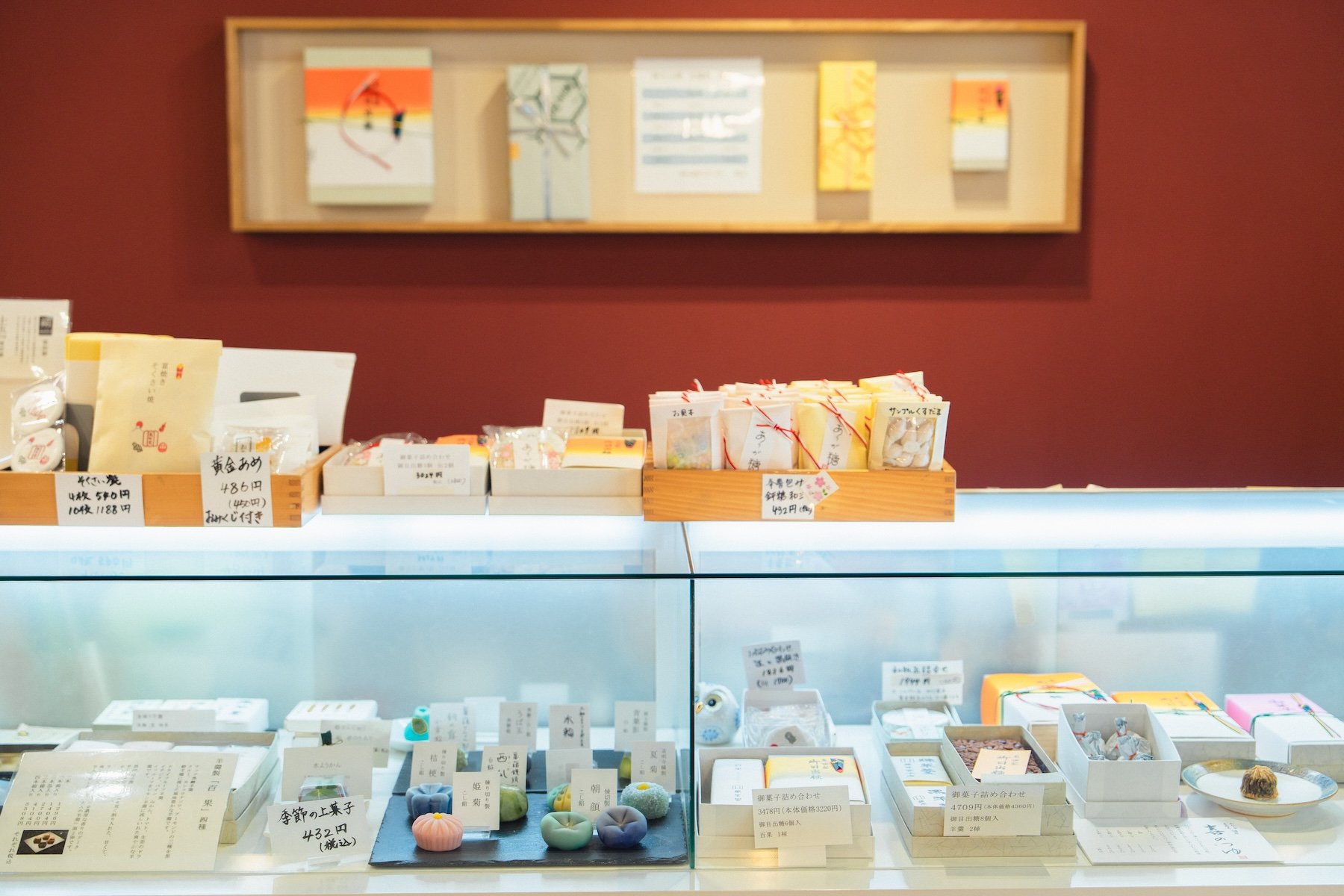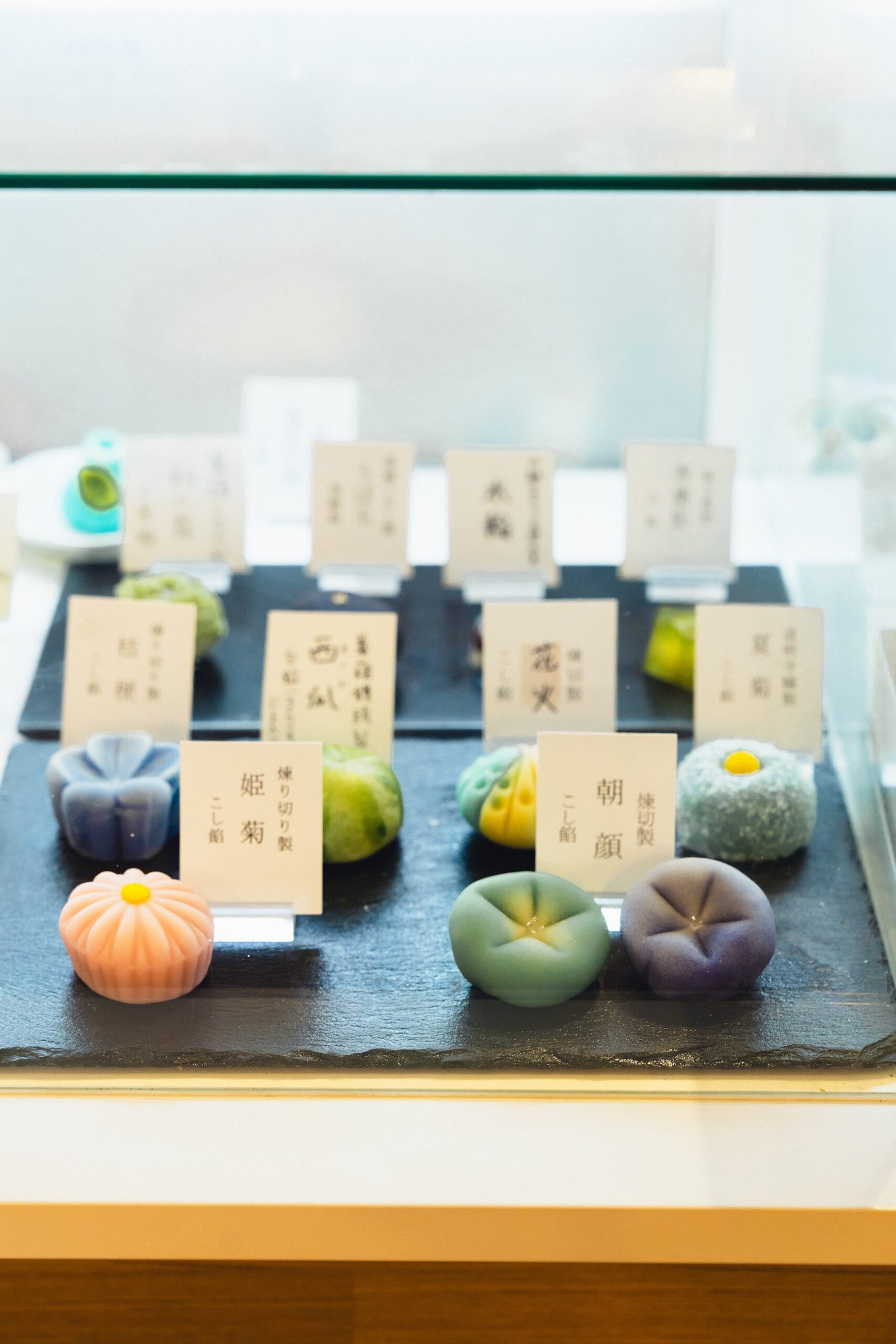CATEGORY
AREA

2025.08.30
More than 400 years of tradition—enjoy signature wagashi and matcha at a historic confectionery.
 address
address
 Nearest Station
Nearest Station
Founded in 1617 (Genna 3), “Mannendou Honten” is a venerable wagashi (traditional Japanese confectionery) shop with more than 400 years of history—a true icon in the world of Japanese sweets. Its representative confection, the auspiciously named Omedetou (literally “Congratulations”), has been chosen as a celebratory gift for over a century. In the tearoom, decorated with bamboo for a refined atmosphere, visitors can enjoy freshly steamed Omedetou served in a bamboo steamer, as well as seasonal namagashi (fresh seasonal sweets) paired with matcha—special treats available only here.
“Mannendou Honten” was originally founded in 1617 in Sanjo, Kyoto. At first, it did not operate as a retail shop but under the name “Kameya Izumi,” providing wagashi to the Imperial family, high-ranking shogunate officials (shoshidai), and temples and shrines. With the Meiji Restoration and the relocation of the capital to Tokyo, the shop moved to Yaesu, and after losing its premises in the Great Kanto Earthquake, it established itself in Ginza. Today, the 13th generation continues to uphold its tradition. The current store, which includes a tearoom, features an interior design rich in bamboo and also hosts cultural events such as rakugo (comic storytelling) performances and Kabuki workshops, making it a quintessentially Ginza space.
The signature sweet, Omedetou, is memorable for its auspicious name. It originated from Korai Mochi, a sweet described in documents from the Genroku period, which resembled celebratory red rice. In the mid-Meiji period, it was renamed “Omedetou.” This wagashi is made by blending sweet red bean paste with rice flour and glutinous rice flour into a crumbly texture, then steaming it with candied Dainagon azuki beans sprinkled on top. The result is a chewy, distinctive texture with the deep flavor of azuki beans. For over a hundred years, it has been a beloved confection essential to celebrations.
The 13th generation owner's desire to "have Japanese sweets as close to freshly made as possible" led to the renovation of the Man'nen-do Main Store into a store with a coffee shop in 2022. n 2022, the store was renovated to include a tearoom, reflecting the 13th-generation owner’s wish for customers to experience wagashi as close to freshly made as possible. The famed Omedetou is served in a bamboo steamer, allowing guests to savor its chewy, just-steamed texture. Other menu items include warabi mochi (chewy sweets made with bracken starch) with freshly prepared bean paste, as well as courses pairing seasonal namagashi with matcha. The shop also offers authentic Uji matcha, a rare treat in Ginza. In summer, shaved ice made with house-made syrups from homegrown yuzu (Japanese citrus) and ume (plum) is especially popular.
A tranquil space featuring bamboo décor where customers can relax with wagashi and matcha.
While cherishing tradition, “Mannendou Honten” also offers wagashi with contemporary innovations. Omedetou remains the classic choice for celebratory gifts, but for those seeking the beauty of the seasons, jo-namagashi (high-grade fresh sweets) are recommended. Another specialty unique to the shop is Yoshi no Tsuyu, a refreshing sweet made with soft kuzu (arrowroot starch) and premium hon-warabiko (bracken starch) flavored with brown sugar. It is named after the tradition that successive generations of proprietors include the character “Yoshi” in their names.
The showcase displays Mannendou’s signature wagashi.
Jo-namagashi, featuring motifs that change with the seasons, are 432 yen each, admired for their beauty as well as their taste.
The information contained this article was correct as of 08/30/2025 (the time of publication)


